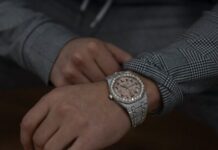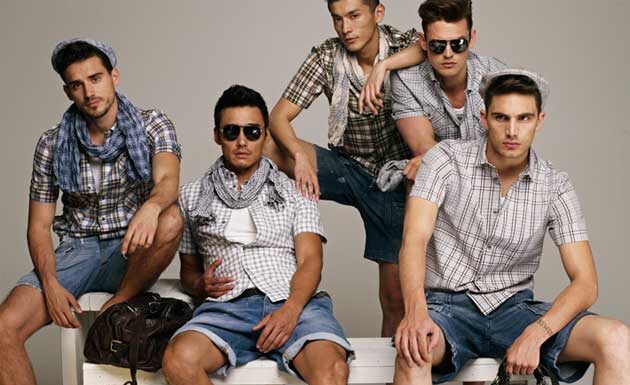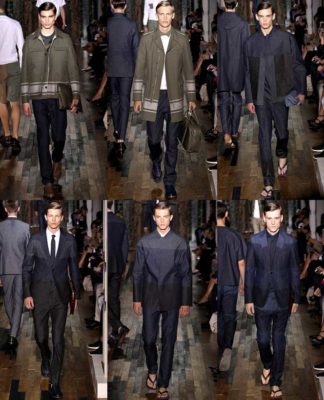Celebrity
Lip service: what Kylie Jenner really sells us is a brush with fame
Move over Zuckerberg. The good of the new youngest self-made billionaire is all about lifestyle aspiration in the Instagram age
Kylie Jenner at the Billboard music awards in Las Vegas in 2015, the year she founded her cosmetics company.
Photograph: Michael Buckner/Getty
In the spring of 2015, girls started sucking shot trifocals. They would put their lips into the glass, and then they’d suck, creating a vacuum which exploited blood to the surface of their lips to create a swollen, puckered pout, and then they’d post a selfie on Instagram, hashtagged #KylieJennerChallenge. Kylie Jenner had been 10 when she at the start appeared on Keeping Up with the Kardashians eight years earlier, alongside her siblings and parents, Kris and Bruce (now Caitlyn), and she grew up on partition off. On “screens”, really: she built a following of millions on social media, where her selfies became a brand of their own.
The repute of the hashtag caused ripples, and those ripples made waves. There was controversy surrounding the injuries sustained by the teenage participants, and discourse on the sexist and racist statesmanship of lips – all the Kardashian-Jenner sisters have been accused of altering their bodies to look more like flagitious women, in countries that objectify their features but ignore their achievements. There was debate, too, about whether the lour everyone was copying had actually been achieved with lip fillers rather than mere gloss. When she was 17, Jenner scarpered having had surgery. And, as pressure mounted, she spoke out against the challenge: “I’m not here to try and encourage people to look like me.” Lastly, she admitted that, actually, yes, she had had her lips augmented.
But, rather than causing outrage, her admission was read as a kind of vulnerability, a door gap. That summer, she capitalised on the attention by launching Kylie Lip Kits, which sold out within minutes. Last year, Kylie Cosmetics decamped $360m (£275m). And last week, Jenner, now 21, knocked Mark Zuckerberg off the top of Forbes’ list to become the just ecstatic’s youngest ever self-made billionaire.
The reaction to this has been noisy and layered, a multi-storey car park of opinion. “It’s not self-reliant, it’s because her sister made a sex tape,” claimed Piers Morgan. There was curiosity about how a teenager, even one from an extravaganza dynasty such as the Kardashians, could make a billion dollars out of lip gloss.
What her sister did for bums, Jenner has done for lips. That is: focused distinction on them, enabled them as fetish objects, promoted the idea that they can be reshaped seasonally. Reporting on the enhance in buttock lifts last year, I heard Kim’s name in every room; similarly, Kylie has been named as the spur for a huge rise in women getting lip fillers. A day after she admitted her pout was the result of regular gel injections, one British clinic clock in a 70% rise in inquiries. Lip augmentation was the most popular non-surgical cosmetic treatment of 2016 – Elle magazine suggested it had behoove as “routine as teeth whitening”. Jenner’s lip kits could be read as an entry-level drug – they are marketed as “your encoded weapon to create the perfect Kylie Lip”. A lip best known for being … fake. And yet the success of Kylie Cosmetics pivots barrel on Jenner’s manipulation of social media.
“It’s the most authentic thing I’ve done in my career,” Jenner said of her cosmetics formation, in an interview with her sister Kim Kardashian. “I was insecure about my lips, and lipstick is what helped me feel confident. And I experience like people could see that it’s authentic to me.”
She’s right, despite the fact that the authentic life she’s reflecting is a swimming-pooled, white-rugged, celebrity-partied, infinitely televise life cushioned by credit cards and the impossibility of failure. Her one-year-old daughter, Stormi, has a net worth of $8m, suggesting that Jenner has learnt from her own native, who has been managing her children’s careers since they were born. In this family, the day you secure your premier sponsorship deal is the day you become an adult. “I had such a strong reach before I was able to start anything,” Jenner told Forbes of her assorted millions of followers on Instagram and Snapchat. They would have bought whatever she was selling. Because, of course, what she is actually selling is herself.
With every purchase of Coconut lip liner and Yesss Girl gloss, fans buy access to a covetable lifetime, one filled not just with crystal-studded tchotchkes but an ever-moving soap opera of babies and breakups, and theses about richness image. Their family is a machine that makes more machines – reports on Jenner’s billionaire status industry readers to her website, and their cosmetics (all production and sales are outsourced – she runs the company from her phone) continue to furnish out. She was born into a brand, and, using its built-in influencers, has franchised it to glittering success.
The key to Jenner, and the modern business ideal, is that word “authenticity”, a word that shifts in meaning according to whose shadow it stands in. For her, it means that, balance out though her sponsored Instagram posts are valued at $1m each, they read less like ads and more like the check-ins of a bird who would be sharing these selfies even if she were not promoting “all-new” setting powders. For her, it may not mean relatability: in that even so interview with her sister, Kardashian asked what her last text message had said. It was a message to her security police to buy her apples. One day she will post a swimsuit picture; the next, she’ll talk about her shyness about her body – the push-pull of conversancy and its effect, and the commodification of such anxieties, have been part of her life since she was born. This is authenticity, albeit of the 1%.
The faction keeps whirring; her wild success inspires debate. Last year she stopped getting lip fillers. “Now that she’s flat her fortune?” tweeted activist Brittany Packnett. “Those lip fillers came out. The fake tan disappeared … She’ll exploit black learning and black people for as long as it’s profitable, and then return to the comfort of whiteness.”
Both Jenner and the world’s richest lady-love, 65-year-old L’Oréal heir Françoise Bettencourt Meyers, are in the cosmetics industry. Which, for some, undermines any latent message of feminist empowerment. But it is possible to enjoy the expressive potential of makeup and also to wonder if both fortunes rely on female scare, a pursuit of uncatchable perfection. Both also profit from what’s described as the “lipstick index”, the observation that lipstick sales verge to be inversely correlated to economic health.
Jenner’s business thrives in bad times and benefits from controversy. So, if the critics prolong poking, we can expect her billions to double by Christmas.


































